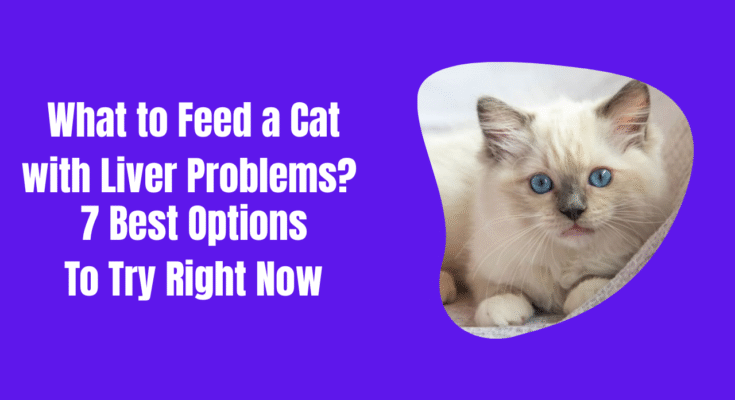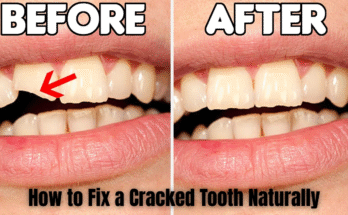If your cat has been diagnosed with liver problems, choosing the right diet becomes absolutely crucial. The liver is responsible for detoxifying the body, metabolizing nutrients, and aiding digestion. When it’s not functioning properly, your feline friend needs nutritional support to prevent further damage and promote healing. In this blog, we’ll explore what to feed a cat with liver problems, with a special focus on the 7 best food options that are gentle on the liver and packed with the nutrients your cat needs to recover.
Why Diet Matters for Cats with Liver Problems
Liver disease in cats—whether it’s due to hepatic lipidosis (fatty liver), cholangitis, or liver tumors—can cause a range of symptoms like weight loss, vomiting, lethargy, and jaundice. Proper nutrition can:
- Reduce the liver’s workload
- Promote liver regeneration
- Prevent complications like malnutrition or ammonia buildup
- Support the immune system
A therapeutic diet for liver problems should typically be moderate in protein, low in copper, rich in antioxidants, and easily digestible.
7 Best Food Options for Cats with Liver Problems
- 1. Veterinary Prescription Diets
- 2. Boiled Chicken or Turkey
- 3. Cottage Cheese
- 4. Pumpkin (Plain, Cooked or Canned – No Sugar)
- 5. Egg Whites (Cooked)
- 6. Rice or Oatmeal (Plain, Cooked)
- 7. Omega-3 Fish Oil Supplements (Vet-Recommended Only)
1. Veterinary Prescription Diets (e.g., Hill’s l/d or Royal Canin Hepatic)

Why it’s good:
These diets are formulated specifically for liver support. They usually contain highly digestible proteins, reduced copper content, added antioxidants (like vitamin E and C), and L-carnitine to aid fat metabolism.
Best for: Cats with diagnosed liver disease under vet care.
🐾 Note: Always consult your veterinarian before switching to a prescription diet.
2. Boiled Chicken or Turkey (Skinless, Boneless)
Why it’s good:
Lean poultry is a great source of high-quality, easily digestible protein. It’s low in fat and doesn’t stress the liver.
How to serve:
Serve it plain—boiled, with no added salt, seasoning, or oil. Shred into small pieces.
Best for: Cats with mild liver issues or needing a bland, protein-rich meal.
3. Cottage Cheese (Low-Fat)

Why it’s good:
Low-fat cottage cheese offers an alternative protein source that’s gentle on the liver and easy to digest.
How to serve:
Feed in moderation as a treat or mix with other foods. Monitor for lactose intolerance symptoms.
Best for: Supplemental protein in cats that tolerate dairy.
See Also: 10 Foods That Strengthen Teeth Naturally
4. Pumpkin (Plain, Cooked or Canned – No Sugar)
Why it’s good:
Pumpkin is rich in fiber, supports digestion, and helps regulate bowel movements. It’s also low in calories and liver-safe.
How to serve:
Add 1–2 teaspoons to your cat’s meal.
Best for: Digestive support and mild constipation in liver-compromised cats.
5. Egg Whites (Cooked)
Why it’s good:
Egg whites are an excellent source of pure protein without the fat found in yolks. They are also free from copper.
How to serve:
Boil or scramble without oil, salt, or seasoning. Cool before serving.
Best for: Increasing protein intake without burdening the liver.
Read Also: How to Fix a Cracked Tooth Naturally: Complete Guide
6. Rice or Oatmeal (Plain, Cooked)

Why it’s good:
These complex carbohydrates are easy to digest and provide energy without overloading the liver.
How to serve:
Serve well-cooked and plain. Can be mixed with lean meats.
Best for: Energy support and gentle digestion.
7. Omega-3 Fish Oil Supplements (Vet-Recommended Only)
Why it’s good:
Omega-3 fatty acids have anti-inflammatory properties and can help reduce liver inflammation and fat buildup.
How to serve:
Only use vet-approved fish oil supplements and the correct dosage.
Best for: Cats with fatty liver disease or inflammation.
Foods to Avoid for Cats with Liver Problems
To prevent further liver stress or complications, avoid the following:
- Raw meat or fish (risk of bacteria and parasites)
- High-fat foods (like fatty cuts of beef or pork)
- Foods high in copper (like liver and organ meats)
- Processed cat treats with unknown additives
- Garlic, onions, or anything seasoned
Additional Tips for Feeding Cats with Liver Disease
- Smaller, frequent meals are easier on the liver.
- Warm up the food slightly to make it more appealing if your cat lacks appetite.
- Ensure hydration—wet food is often better than dry food.
- Use appetite stimulants only under veterinary guidance if needed.
- Monitor your cat’s weight and energy levels regularly.
Final Thoughts
Feeding a cat with liver problems doesn’t have to be complicated—but it does require careful planning. Always work with your veterinarian to create a diet plan that suits your cat’s specific condition. Whether you’re using a prescription liver diet or safe home-cooked foods like boiled chicken and rice, the goal is the same: to support liver function, ease digestion, and help your feline friend thrive.
🐱 Your cat’s liver can heal—nutrition plays a big role. Start with these 7 liver-friendly food options and give your furry companion the care they deserve.
FAQs: What to feed a cat with liver problems?
What is the best type of food for cats with liver disease?
Prescription liver-support diets like Hill’s l/d or Royal Canin Hepatic are usually best, as they’re specially formulated for liver health.
Can I feed my cat with liver issues regular cat food?
Regular commercial cat food is not recommended for liver problems, as it may contain high fat or copper levels that can worsen the condition.
Is protein bad for cats with liver disease?
Not necessarily, cats need protein, but it should be high-quality and easily digestible. Too much or low-quality protein can stress the liver.
Can I give my cat supplements for liver health?
Yes, but only under veterinary guidance. Omega-3s, milk thistle, and SAMe are sometimes used for liver support.
Should I avoid feeding organ meats to my cat with liver problems?
Yes, especially liver or kidney meats, as they are high in copper and can be harmful to cats with liver disease.
How can I get my cat to eat if they have no appetite due to liver issues?
Try warming the food, offering small meals frequently, or asking your vet about appetite stimulants or syringe feeding.
Can cats recover from liver disease with the right diet?
Many cats can improve significantly with a proper diet, early diagnosis, and regular veterinary care especially in cases like hepatic lipidosis.




